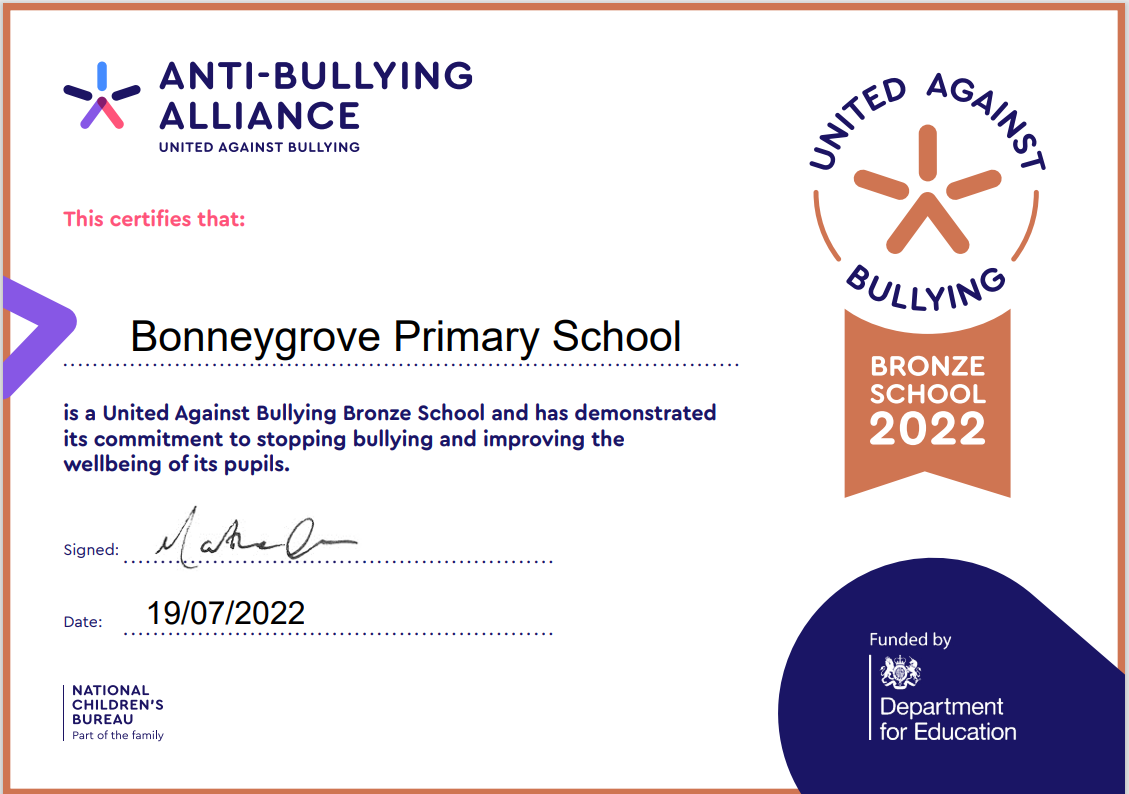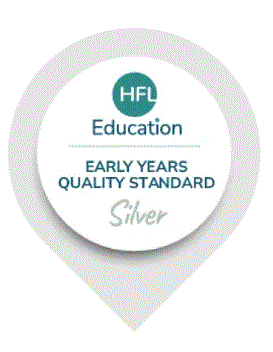Attendance
Information for Parents
A single consistent national threshold for when a Penalty Notice must be considered by ALL schools in England, this is:
- 10 sessions (usually equivalent to 5 school days) of unauthorised absence within a rolling 10 school week period.
- These sessions do not have to be consecutive and can be made up of a combination of any type of unauthorised absence.
- For example, a 5-day unauthorised leave of absence would meet the national threshold.
- The 10-school week period ( less than one school term) can span different terms or school years.
First Offence
The first time a Penalty Notice is issued for unauthorised absence, the fine amount will be:
- £80 per parent, per child if paid within 21 days.
- If not paid within 21 days, the fine will increase to £160 per parent, per child, payable between the 22nd and 28th day.
Second Offence (within 3 years)
The second time a Penalty Notice is issued for unauthorised absence, a reduced rate is not available. The amount therefore will be:
- £160 per parent, per child – payable within 28 days.
Third Offence and Any Further Offences (within 3 years)
The third time an offence is committed, a Penalty Notice WILL NOT be issued, and the case will be presented straight to the Magistrate’s Court:
- Prosecution can result in criminal records and fines of up to £2,500.
- Cases found guilty in a Magistrates Court can show on the parent’s future DBS (Disclosure and Barring Service) certificate (Disclosure and Barring Service) due to a ‘failure to safeguard a child’s education’.
Parents/carers will receive regular updates on attendance from school. The Headteacher and all the staff monitor attendance daily, weekly, half termly and termly. Children are rewarded in school for excellent attendance and they are very clear about why excellent attendance is important.
Why is regular school attendance so important for my child?
Regular attendance at school means that your child can make the most of their education and improve their chances in adult life.
School can also help your child’s social skills such as making and developing friendships. A regular and punctual attendance pattern will help your child when they go to secondary school and later enter the world of work.
The link between attendance and attainment in school is clear.
The more a pupil is in school the more they increase their opportunity to fulfil their potential.
Punctuality
Schools are legally required to take a register of pupils first thing in the morning and at some point in the afternoon.
If a pupil is late, but the register is still open they are marked as late. If the register has already closed when a pupil arrives late and without a satisfactory explanation, it will be classed as late after the register has closed which will count as an absence. Our registers close at 9:00am.
Continual punctuality is important because if, for example, a child arrives 15 minutes late at school each day, they lose almost 3 weeks of education a year! Absence due to lateness (after 9:00am) will be referred to the Education Welfare Officer.
Holidays during term time
No term time leave for holidays is routinely authorised at Bonneygrove Primary School.
Parents who choose to take their child out of school without written permission from the school may be issued with a fixed penalty fine.
Only in exceptional circumstances may a head teacher grant permission for leave.
How can I help my child attend school regularly?
- Talk to your child about school
- Take a positive interest in your child’s work, including homework.
- Use the apps and sites we have available to help your child learn such as “Timestable Rockstars”
- Keep in touch with school staff
- Contact school on the first day of absence if your child is unable to attend for whatever reason
- Attend parents’ evenings and other school events
What should I do if I’m worried about my child’s school attendance?
The first thing to do is to contact the school to discuss your concerns.
What are my responsibilities regarding my child’s school attendance?
As a parent/carer it is your responsibility to ensure that any child of compulsory school age attends school both regularly and on time. The local authority has a duty to make sure that all parents/carers fulfil this responsibility.
What will happen if my child does not attend school regularly?
The school should contact you in the first instance to raise concerns about your child’s attendance. If they see no improvement, or there are particular difficulties involved, a referral will be made to the Education Welfare Service.
What if my child’s school attendance does not improve?
Parents whose children are on a school register and fail to ensure the regular and punctual attendance of their child(ren), may be guilty of an offence under Section 444 or 444(1A) of the Education Act 1996 and the Local Authority may issue a Penalty Notice or take enforcement action through the Courts to secure regular attendance.
How will regular school attendance help my child?
School gives your child a wide range of opportunities and experiences in the form of academic lessons, educational trips and school clubs allowing them to develop their interests and achieve their full potential. Regular school attendance means that your child can make the most of their education.
Is my child too ill for school?
It can be tricky deciding whether or not to keep your child off school, nursery or playgroup when they're unwell.
There are government guidelines for schools and nurseries about managing specific infectious diseases at GOV.UK. These say when children should be kept off school and when they shouldn't.
If you do keep your child at home, it's important to phone the school or nursery on the first day. Let them know that your child won't be in and give them the reason.
If your child is well enough to go to school but has an infection that could be passed on, such as a cold sore or head lice, let their teacher know.
Other illnesses
Follow this advice for other illnesses:
Coughs and colds
It's fine to send your child to school with a minor cough or common cold. But if they have a fever, keep them off school until the fever goes.
Encourage your child to throw away any used tissues and to wash their hands regularly.
High temperature
If your child has a high temperature, keep them off school until it goes away.
Chickenpox
If your child has chickenpox, keep them off school until all the spots have crusted over.
This is usually about 5 days after the spots first appeared.
Cold sores
There's no need to keep your child off school if they have a cold sore.
Encourage them not to touch the blister or kiss anyone while they have the cold sore, or to share things like cups and towels.
Conjunctivitis
You don't need to keep your child away from school if they have conjunctivitis.
Do get advice from your pharmacist. Encourage your child not to rub their eyes and to wash their hands regularly.
COVID-19
If your child has mild symptoms, such as a runny nose, sore throat, or slight cough, and feels well enough, they can go to school.
Your child should try to stay at home and avoid contact with other people if they have symptoms of COVID-19 and they either:
- have a high temperature
- do not feel well enough to go to school or do their normal activities
What to do if your child has tested positive
Your child is no longer required to do a COVID-19 rapid lateral flow test if they have symptoms. But if your child has tested positive for COVID-19, they should try to stay at home and avoid contact with other people for 3 days after the day they took the test.
Ear infection
If your child has an ear infection and a high temperature or severe earache, keep them off school until they're feeling better or their high temperature goes away.
Hand, foot and mouth disease
If your child has hand, foot and mouth disease but seems well enough to go to school, there's no need to keep them off.
Encourage your child to throw away any used tissues straight away and to wash their hands regularly.
Head lice and nits
There's no need to keep your child off school if they have head lice.
You can treat head lice and nits without seeing a GP.
Impetigo
If your child has impetigo, they'll need treatment from a pharmacist or GP, often with antibiotics.
Keep them off school until all the sores have crusted over and healed, or for 48 hours after they start antibiotic treatment.
Encourage your child to wash their hands regularly and not to share things like towels and cups with other children at school.
Measles
If your child has measles, they'll need to see a GP. Call the GP surgery before you go in, as measles can spread to others easily.
Keep your child off school for at least 4 days from when the rash first appears.
They should also avoid close contact with babies and anyone who is pregnant or has a weakened immune system.
Ringworm
If your child has ringworm, see your pharmacist unless it's on their scalp, in which case you should see a GP.
It's fine for your child to go to school once they have started treatment.
Scarlet fever
If your child has scarlet fever, they'll need treatment with antibiotics from a GP. Otherwise they'll be infectious for 2 to 3 weeks.
Your child can go back to school 24 hours after starting antibiotics.
Slapped cheek syndrome (fifth disease)
You don't need to keep your child off school if they have slapped cheek syndrome because, once the rash appears, they're no longer infectious.
But let the school or teacher know if you think your child has slapped cheek syndrome.
Sore throat
You can still send your child to school if they have a sore throat. But if they also have a high temperature, they should stay at home until it goes away.
A sore throat and a high temperature can be symptoms of tonsillitis.
Threadworms
You don't need to keep your child off school if they have threadworms.
Speak to your pharmacist, who can recommend a treatment.
Vomiting and diarrhoea
Children with diarrhoea or vomiting should stay away from school until they have not been sick or had diarrhoea for at least 2 days (48 hours).















